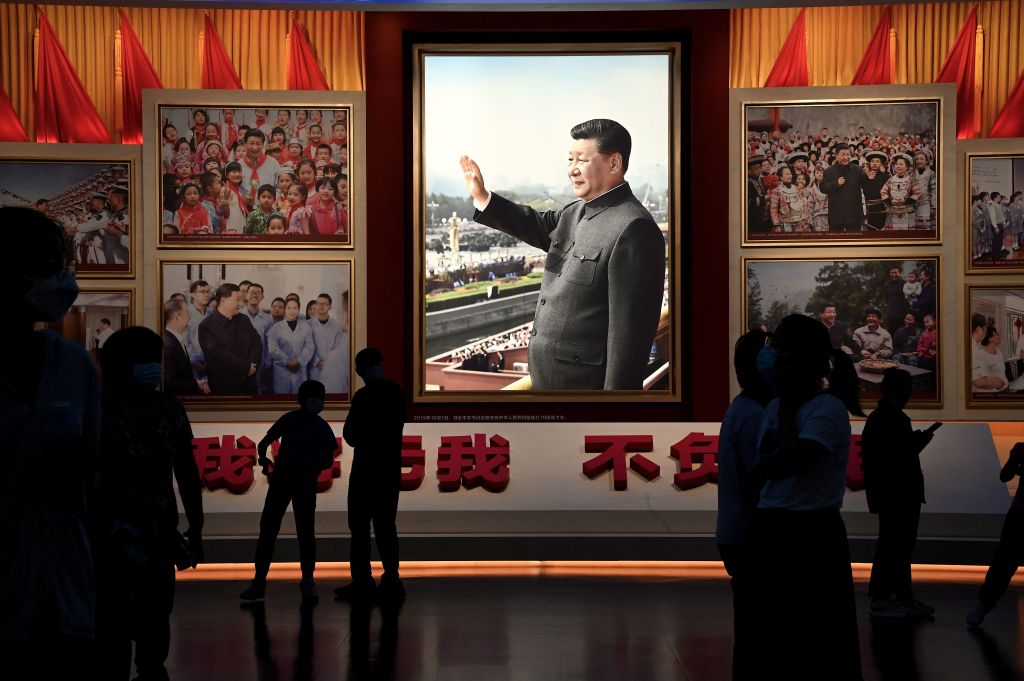Chinese President Xi Jinping has spent the past decade steamrolling internal opposition and increasing his control over China. The 20th National Congress of the Chinese Communist Party, a week-long affair that begins Sunday, will make Xi’s consolidation of power official by renewing his positions as leader of the Chinese Communist Party and commander of the Chinese military. Next March, Xi will also get his third term as president, a largely honorific distinction.
“The expectation is, he won’t just be heading China for the next five years, he will probably be heading China for life,” said Ian Johnson, a China expert with the Council on Foreign Relations. “He is really the most powerful Chinese leader in decades.”
What is the party congress?
Every five years, the CCP hosts a meeting to appoint senior officials—including the country’s paramount leader—and lay out a broad policy agenda.
Over 2,000 delegates will meet in a plenary session to elect a new Central Committee, which consists of around 200 members (and as many alternatives). Days after the party congress winds down, the Central Committee, which meets annually, will elect a political bureau—Politburo—whose 20 to 25 members effectively rule the party. The Politburo Standing Committee (PSC), consisting of five to nine members, including the general secretary and president, tops the pecking order.
The number of Xi allies with standing committee seats can offer clues at how much he has consolidated control of the party. This will also shape how easily he can enact his agenda.
What has Xi done in his first 10 years in power?
Early in life Xi had to overcome the stigma of having a father ousted from power by Mao Zedong. After a long career rising through the party, Xi became general secretary of the CCP in 2012 and president the following year.
Xi turned 69 this year, having already surpassed the CCP’s traditional retirement age of 68. Normally, a Chinese leader would be preparing for a quiet post-presidency, but Xi only grew more powerful as time went on.
Already at the top of the party, he elevated his own status further to that of his most renowned predecessors: The CCP in 2016 granted Xi the title of “core leader,” a title previously granted only to a select few Chinese leaders, including Mao, who were viewed as central to the CCP. In 2017, Xi broke with precedent by not appointing a successor at that year’s national congress, a move not seen since Mao. A year later, Xi pushed through a constitutional amendment abolishing term limits that would have required him to step down as head of the party after 10 years. The party also voted to enshrine Xi’s ideology, described as “Xi Jinping Thought” into the party’s constitution.
One of Xi’s first initiatives was to purge more than 1 million corrupt officials—and, not coincidentally, plenty of political rivals—from the party. He has continually emphasized the “rule of law,” which in Xi’s China means conformity with his wishes.
With his “common prosperity” campaign, Xi also sought to close the gap between China’s rich and poor by enacting more control over the economy and wider culture. He’s cracked down on civil society, put stiff regulations on tech giants like Alibaba and Tencent, squelched foreign nongovernmental and religious minority groups, and gone after celebrities in the business, sports, and art world who ran afoul of the party line.
“There’s been a real tightening,” Johnson said. “Any kind of social organizations that might have had a little bit of leeway in the past have now been brought under party control. Which I think was part of his mandate when he took power—to reassert control over society.”
Xi’s “Zero-Covid” strategy led to lockdowns of millions of urban residents. The U.S. considers his brutal campaign to detain over 1 million Uyghur Muslims and other ethnic minorities in China’s Xinjiang region to be genocide.
Perhaps most significant is that under Xi, China has emerged as a strident and outspoken player on the world stage: “Xi Jinping has been very aggressive in foreign policy. He’s been much more aggressive than any leader,” Johnson said.
Xi has championed “wolf warrior diplomacy,” which features a much bolder, unapologetic, and confrontational approach when interacting with other nations. To back up the tough talk, Xi also reasserted the CCP’s control over the military and invested heavily. China has asserted its control over the South China Sea through military exercises and has ramped up military aggression toward Taiwan.
Other countries have increasingly soured on China, fueled by concerns of cyber espionage, aggression towards Taiwan, and its human rights abuses in Xinjiang. And it faces increasing suspicion from the West.
“It’s going to be harder to avoid conflicts over things like Taiwan,” Johnson said. “The atmosphere in this country has hardened quite significantly so that the daylight between Democrats and Republicans is quite small; there’s very little difference in the policy toward China.”
China faces an array of thorny issues: A slowing economy, a shrinking population, joblessness, (particularly among China’s youth), a lingering COVID-19 pandemic, and growing tensions on the global stage. But none of that is expected to dim Xi’s political fortunes: China watchers believe he will emerge from the National Congress emboldened, with an even stronger mandate to steer the country the way he wants.






Please note that we at The Dispatch hold ourselves, our work, and our commenters to a higher standard than other places on the internet. We welcome comments that foster genuine debate or discussion—including comments critical of us or our work—but responses that include ad hominem attacks on fellow Dispatch members or are intended to stoke fear and anger may be moderated.
With your membership, you only have the ability to comment on The Morning Dispatch articles. Consider upgrading to join the conversation everywhere.